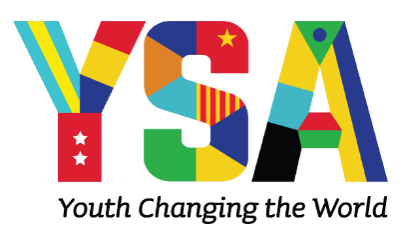This proposal is part of a broader initiative that leverages the knowledge of Food and Agriculture Organisation (FAO) and its strategic partners in the mobile world, promoting digital inclusion for smallholders and family farmers in Rwanda and Senegal, both countries which represent the face of digital divide, rural poverty and malnutrition. Through adoption of mobile applications, initially four services will be deployed, aiming to change the way rural households do business, manage their assets and access essential information for their daily needs and opportunities.
This proposal is part of a broader initiative that leverages the knowledge of Food and Agriculture Organisation (FAO) and its strategic partners in the mobile world, promoting digital inclusion for smallholders and family farmers in Rwanda and Senegal, both countries which represent the face of digital divide, rural poverty and malnutrition. Through adoption of mobile applications, initially four services will be deployed, aiming to change the way rural households do business, manage their assets and access essential information for their daily needs and opportunities.
As the protection and management of the environment is one of the pillars of Rwanda's Vision 2020, the "country of a thousand hills" has undertaken many initiatives to protect ecosystems for income generation and good governance. Several of these projects, including the initiative to preserve the Rwandan mountain gorilla and wetland restoration efforts in the Nyabarongo-Akagera network and Rugezi, are already beginning to reap environmental, economic, and employment benefits. Source: UNEP (2011) Green Economy . Advisory Services. Rwanda has helped to restore the population of the critically en...[more]
Rwanda adopted an Environment and Natural Resources Sector plan (2009 - 2013) - "Towards a Green, Clean, Healthy and Wealthy Rwanda", to ensure a sustainable management of natural resources and environment to meet the Economic Development and Poverty Reduction Strategy (EDPRS) and MDG targets, Vision 2020 aspirations and the country's international commitments. Source: Ministry of Natural Resources, Republic of Rwanda "The implementation of the Environment and Natural Resources Strategic Plan will ensure that sustainable use of environmental goods and services and rational unilization of natu...[more]
The Republic of Rwanda released its Green Growth and Climate Resilience National Strategy for Climate Change and Low Carbon Development in October 2011. The Strategy aims to build upon work that is already being done in Rwanda on climate change, focusing the various projects and policies in a holistic national document which encompasses the long-term direction as well as short-term priority actions. The Strategy is one of the initial steps on a pathway which leads to a sustainable, secure future where Rwanda is prepared for the risks associated with climate change, population growth and risin...[more]
Rwanda commits to increasing heath sector spending from 10.9% to 15% by 2012; reducing maternal mortality from 750 per 100,000 live births to 268 per 100,000 live births by 2015 and to halve neonatal mortality among women who deliver in a health facility by training five times more midwives (increasing the ratio from 1/100,000 to 1/20,000). Rwanda will reduce the proportion of children with chronic malnutrition (stunting) from 45% to 24.5% through promoting good nutrition practices, and will increase the proportion of health facilities with electricity and water to 100%.
This policy represents the country's second medium-term strategy towards the attainment of the long-term Rwanda Vision 2020 Objectives Source: The Government of Rwanda The Economic Development and Poverty Reduction Strategy of Rwanda (EDPRS) sets out medium-term objectives and indicative financial allocations. Environment is identified as a key cross-cutting issue. In addition several sectors with a strong environmental and natural resource content have been identified as critical for achieving Rwanda's development objectives, given their links to productive (e.g. land) or to health (e.g. wat...[more]
Africa's large youth population presents a complex problem that requires strategic investments in education, health, energy, skills, economic reforms and good governance. At a time when sub-Saharan Africa is going through significant changes in economic, social and political, technological and environmental frontiers, some youth across Africa are being left out. YALI is set out to equip the next generation of skilled young African leaders. The objective in this partnership is to proactively engage, develop, and support the young leaders, exposing them to leadership tools, models and diversit...[more]
 Welcome to the United Nations
Welcome to the United Nations



